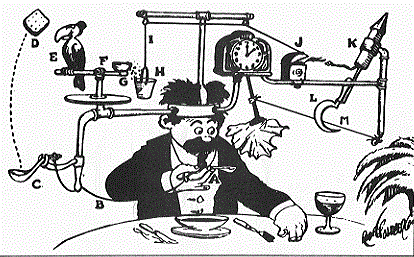
Another AI translation company is making the headlines. Another excuse for translators of the world to unite in muttering multilingual maledictions at the screen. What else can be done, though? Here are ten subjective ideas.
0. Disclaimer
I’ve been a translator (fiction + non-fiction) for 20 years now, and taught translation for 5 of these years, so I know how translation works. I also worked for 3 years as a commissioning editor in (trade) publishing, so I know how books make money.
You’re free to have your opinion on AI, books, and translation. This is my blog, so I’m voicing mine. If you want to debate this, my socials and contact details are below.
This will get ranty and sweary.
What (tends to) work for me might not work for your context, or moment in time, or language pair. That’s fine. Hopefully you’ll be able to mix and match these, or to use them as springboards for your own ideas.
Okay? Okay.
1. Get good
This one is both the first that came to mind, and the hardest one to accomplish. Yes, machine translation exists. Yes, it’s now scaled to a point where it can sort-of attempt to translate works of fiction. And, yes, the industry is at the moment sufficiently drunk on the AI Kool-Aid to believe this might work. But there are, and will always be, projects which won’t ever work with AI translation – and there’ll always be translators who are good enough to keep getting work, no matter what rates they charge. If you are mid-way to good these days, reading about AI translation might be disheartening: I’m urging you to lean in instead. Getting good is what will set you apart from the slop.
I realise this is shitty advice. I know plenty of good translators who aren’t getting work. How do you get good if the work isn’t coming? How can you get anywhere near good, if the entry-level jobs now get given to the robots?
I also realise this can sound like blaming translators for what’s going on: if you’re not successful now, it follows that you’re not good enough. That is NOT what I’m trying to say.
I mean to suggest that we keep working, learning and growing as translators, and keep treating the work and growth as something worth staying with. If my paid translation jobs dry up tomorrow, I still hope to do things, and get good that way. In itself, that’s a project worth cultivating.
Some of the tips below will help, but ultimately, there is no helpful lifehack to this. AI translation exists to cut costs, pure and simple. This means the more popular it gets, the less attractive the thought of giving work to translators becomes. And this means there’s a threat that translators’ work will get devalued.
Therefore…
2. Get proud
There are at least two conversations coming translators’ way, now that AI translation is becoming a thing.
The first conversation explores the more theoretical, big-picture question: “why shouldn’t we use AI for at least some parts of the process, in at least some areas?” If a book lends itself to AI translation, or if a title lends itself to being read by machine voices and not human audiobook actors – why shouldn’t publishers explore this?
The second conversation is around the practical consequences of using AI to try and translate things. And the question it explores is, “why shouldn’t publishers employ translators to edit, re-work, polish, or otherwise improve the initial pass generated by AI?”
There are several ways to answer these, and I urge you to come up with your own opinions. But I would argue that in seeking your voice here, first and foremost, you need to get proud.
Proud enough to recognize that human creativity is unpredictable, unique, and doesn’t neatly fit into a profit-and-loss calculation or a project life cycle. Proud enough to resist the kind of attitude and intellect that today boasts about AI replacement for illustrators, translators or voice authors, and would tomorrow look down the list of costs and demand similar efficiencies of authors, editors, and all those other pesky human contributors. And proud enough to either refuse being employed as “clean-up crew” for slop, or to charge enough asshole tax to make even the dumbest publisher realise they’d have saved money if they’d gone with you from the start.
This is a big ask for a solo freelancer. And so…
3. Get together
Societies for authors and translators. Trade unions. Conferences. Talks. Zoom calls. Group chats. Social media hashtags. Summer schools. Coworking.
Look, an introvert is telling you this: meeting and talking to other translators is a great idea right now. It’s tempting to imagine a great movement of solidarity that comes together and changes the entire industry through a concerted feat of resistance. In reality, it might play out this way: two or three publishers abandon their AI translation plans because they heard similar and consistent arguments from three or four translators. Good enough, I think.
The added benefit of this is that you’ll learn lots from other translators (which helps you to get good).
4. Get weird
No matter how good AI translation gets, there will still be some projects it simply won’t be able to handle, now and in the future. If I asked you, I think you’d be able to easily name two or three authors, projects, or titles that would make a language model cry digital tears in no time.
This might be because the language is used in a new, creative way. Or because the subject matter is just too out-there. Or because, for whatever other reason, the project is just… weird.
At the moment, all large language models are based on one main premise: picking the most likely and predictable element that comes next, based on what they’ve seen so far. That’s not likely to change.
Weird is good right now. Weird is where you run circles around any machine. Get weird.
Sure, weird won’t sell as many copies. So maybe…
5. Get small
The whole reason why I’m having to write this blog post is that publishing, like all other industries out there, is obsessed with “more” and “bigger”.
That’s why novels are pushed and poetry isn’t. That’s why there always has to be a sequel. That’s why every mildly successful series will have dozens of copycats. And that is why, along with many other greedy and risk-averse industries, big publishing houses get giddy at the thought of using AI to cut costs.
One possible direction to look now is away from big publishers. Especially if you’re convinced that getting weird is the right way to go. Small indie projects or publishers are no saints, either, but you may find that you have one important thing in common with them – which brings me to…
6. Get human
On a big, theoretical and philosophical level, this brings the conversation back to agency and creativity. Humans write books for other humans to read, tell stories for other humans to hear, make art for other humans to enjoy.
On a smaller, more practical level, this approach may change how you see your work as a translator. The way you pitch. The way you email people. The way you talk about your work. The text on your website. The way you come across on social media.
I’m vaguely excited by this one. “Vaguely” because it’s tricky to say what change I’m after here. And “excited” because it’s a chance for us to stop talking about “content” and “delivery” and start looking for human moments in our work.
Also: this is how you get good, again. You won’t become a MUCH better translator by learning to prompt your AI minion-du-jour. You will become one by paying kind but unflinching attention to the humans involved in the stories, whoever they are.
7. Get holistic
This kind of attention, back when I worked as an editor, helped me understand my work a bit better. I think it could help translators, too.
The promise of an AI translation company is (despite all it may say publicly) to automate the human away. It’s a flawed plan, just like with any other human activity. I know about translation and teaching, so I can tell you why it’s foolish to try to “AI away” translators and teachers. Salespeople will tell you why AI won’t take sales jobs. Illustrators will be able to defend themselves from AI illustrator wannabes. And so on.
What these AI projects have in common, so far, is a brutally simplistic view of what the work involves. “Oh, so this is what a translator does,” says an AI enthusiast, and he promises a cost-cutting solution. It’s never 100% what a translator does, and his project fails to live up to his promise.
A good translator mediates between authors, editors, agents, and marketing people. She is the sherpa, the scout, the salesperson, the sharphooting guerrilla marketer, before the book even begins. She guides the project (every word and idea of it) through edits, rewrites, rethinks. She makes things different. She makes things better. She makes things accessible. Her brainwaves, doggedness, consistency and patience make the work happen.
I urged you to get proud, and realised it’s a tall order. This might be the point where I praise what you should get proud about. I’ve never met a machine that could do half of what I just listed, and cost half of what translators charge.
8. Get multilingual
The phrase “Large Language Model” tells you its weak point. Today’s AI kinda-sorta-so-far works if it’s large and is allowed to stay large. It becomes a clown car if largeness isn’t possible.
I’m looking forward to the moment when all AI models get too greedy for new language to train on, and become too sloshed on their own slop to be of use any more. That kind of model collapse has already been theorised.
For now, here’s a thought: have you got access to another, smaller language that you could shift your translation efforts to? Catalan instead of Spanish? Corsican instead of French? This approach would work well for those of us who decide to get small and weird.
There’s a bit of a balancing act there, for sure. Not everything merits attention just because it’s in a small language, and not every instance of translation would be welcome in a world where visibility is still a trap.
But my own experience with a small language tells me this: people are using it to do work they are proud of, and some of this work might travel, and some of these folks might be up for the trip.
9. Get technical
Here’s another annoying oversimplification you’re likely to hear from AI proponents: they will tell you that it’s time for your industry (whatever it is) to “embrace technology” and that they bring “digital disruption” to a new area of human activity.
Son, I was teaching people how to use CAT tools when you were watching “WALL-E” in kindergarten. I’ve seen online dictionaries and corpora get built by people who could be your grandparents. I spent decades building my tech stack for translation. Sure, there’s a chance that some of us hate on your AI because we’re ignorant and simply don’t know better.
But there’s a better way to tell you where to shove your half-baked AI trinket. And no matter the industry – from translation to learning design to accessibility – I’ve found that this better counter-argument comes from people who are technical enough to see that what you’re peddling isn’t even close to what they’ve already been confidently using to get work done.
You’re not here to take away our cuneiform tablets. We’ve had amazing translation tech before you came along, and we’ll keep using some of it after you’re gone. Thank you, next.
And to my fellow translators: I know it’s hard to believe, but non-AI tech for translators is still out there. Go and seek out your answers. Work with what works for you. And then, when a publisher inevitably asks whether you “integrate AI into your delivery workflow”, you can geek out about what you use instead and why, and watch them nod sagely as they sign your fucking cheque.
10. Get stoical
Okay, breathe.
All of this has happened before. All of this will happen again.
In 2006, I gave an opening lecture to my translation studies class. We took Google Translate to task. It was a new thing back then, and there was talk of machines replacing translators. (Spoiler: it didn’t.)
And every other year, it seems, an industry I’m involved in gets a bit of drama: a new tech thing arrives, or a business model changes, and everyone starts wondering if “this is the end of Industry X as we know it”.
Despite my sweary rants, I’ve tried to become stoical about AI. People can launch AI companies that promise to do anything. People can have good or bad ideas, stupid or brilliant business solutions, right or wrong opinions.
I hope to be able to say, “let them”. And find better things for me to do.
I hope you will, too – and that along the way, you’ll get good, get proud, and remain a translator.
Vic Kostrzewski (cost-chef-ski, he/him) is a Learning Designer, Translator and Project Manager based in South Wales. To discuss a new project, email anytime: vic@cost-chef.ski
(Image credit: Rube Goldberg, Public domain, via Wikimedia Commons)

